Weekly Writing Summary For The Week Ending 10/16/2025
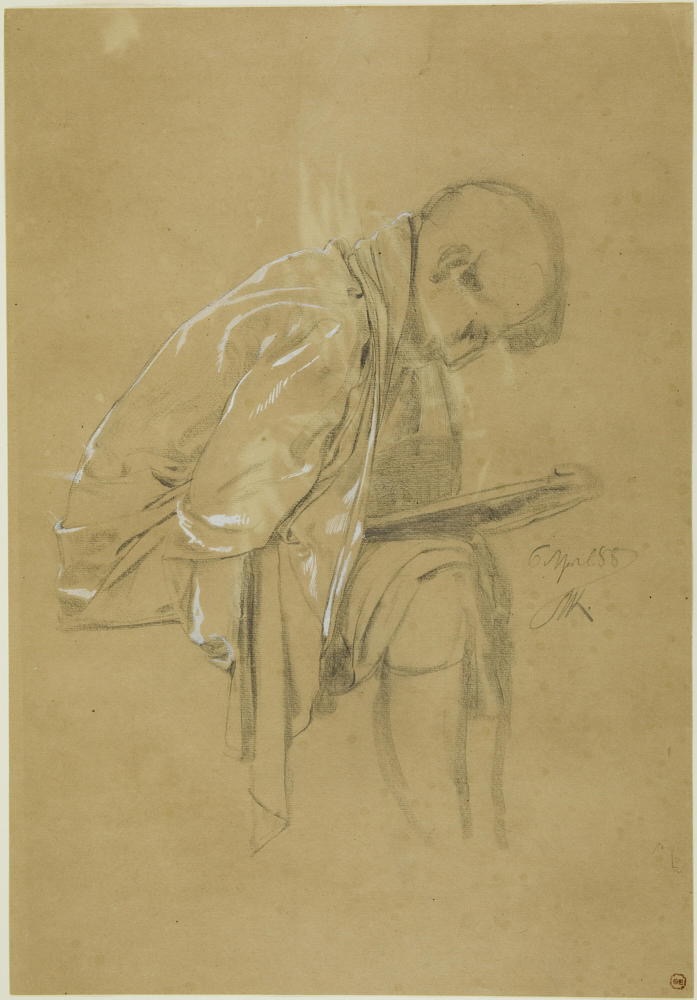
Max Klinger: The Chronicler (recto) April 5, 1888 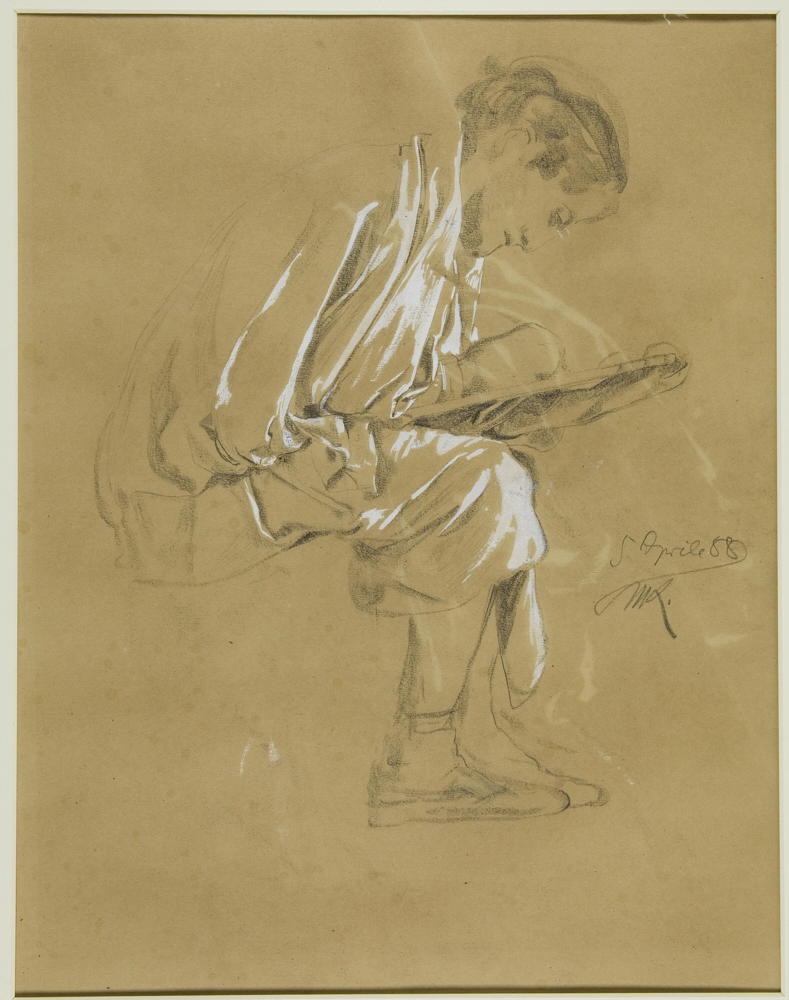
Max Klinger: The Chronicler (verso) April 6, 1888
Gallery Notes: Drawings by the Symbolist artist Max Klinger are very rare. This intimate drawing was completed over April 5-6, 1888, while the artist was staying in Rome on the Via Claudia near the Colisseum. This sensitive figure drawing helped to prepare Klinger’s most important painting of those years, The Crucifixion, 1888/1891. In an almost autobiographical reflection, it depicts the scribe who unemotionally documents the world’s greatest tragedy that rages around him.
This writing week, I focused on themes of Truth, Justice, and The American Way as mediums for describing Decency. I insisted that Truth need not be an absolute to prove helpful in this tenaciously relativistic world. I visited the near-distant future to see our present as precedent in PosseCognito, which was by far my most popular posting in a very long time. I praised dissent in DissEnting, celebrating smart-assedness as perhaps the proudest American tradition. I introduced Questioning into the conversation for it has always been a source of Decency in every discussion. I then introduced a part of me that I don't often own up to possessing: LittleOldMe. I ended this writing week insisting that we're not so much seeking a more perfect union as an ever-more Decent one. Thank you for following along!
——
Weekly Writing Summary
Truth
“Those who live in opposition to truth end up with what they deserve.”
This Decency Story describes what happens when Decency encounters dedicated liars.
This Decency Story insists that Truth doesn’t need to be absolute to matter. Insisting on absolutes can hinder us in this relative world. Lies, while sometimes temporarily thriving, ultimately prove unstable and require enforcement to be sustained. Decent people trust and expect honesty, and can be especially vulnerable to deception. When those in power build their structures on lies, branding dissenters as enemies, those structures become inherently fragile and fated to collapse. In the end, living without truth brings inevitable downfall for those who perpetuate lies.
William Sharp: Diogenes in Searth of an Honest Man (18th-19th century)
——
PosseCognito
“We, the people, regained the upper hand.”
This Decency Story peers into history from the perspective of a few years into the future, after we’ve regained Decency and Democracy thanks to us choosing to locally stand up on our own hind legs again.
This Decency Story observes our time from a point in the near-distant future: By the mid-2020s, frequent federal violations of constitutional rights, such as masked agents using violence against citizens and illegally detaining them, led states and cities to pass PosseCognito laws. These laws made it a felony for law enforcement to conceal identities and mandated clear local certification, leading to many arrests and convictions. The Supreme Court declined to challenge these laws, which grew into a nationwide movement, forcing agencies like ICE to withdraw and leading to the prosecution of top officials. The nation implemented reforms, including purging corrupt elements and renaming agencies to emphasize reconciliation. As authoritarian policies were uprooted, peace, prosperity, and progressive values returned, restoring pride and self-determination.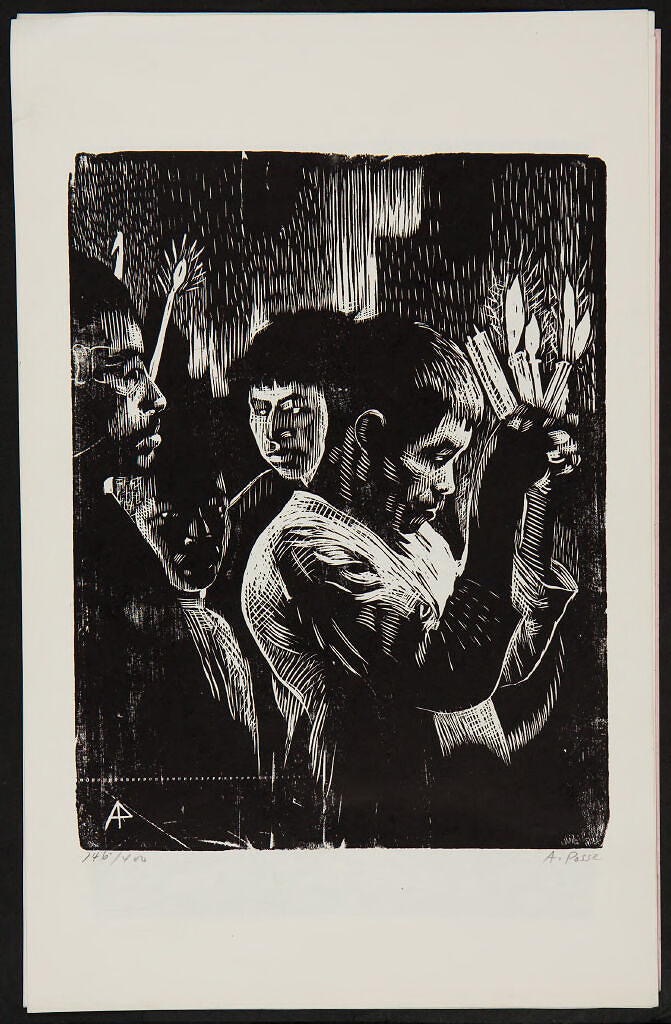
Armando Posse: Procession (1955) — Artist Biography: Armando Posse was a self-taught Cuban artist born in Havana on December 4, 1917, who specialized in engraving, screen printing, and drawing. He co-founded the Taller Experimental de Gráfica in Havana in 1962 and joined the Asociación de Grabadores de Cuba in 1964, where he won an engraving prize. He was known for his graphic production work.
——
DissEnting
“What better way to preserve our actual Constitutional order?”
This Decency Story discusses the DissEnting that our Decency sometimes demands. We are not merely a country of Decency, but one comprised of clowns.
This Decency Story recounts how Portlanders responded to an intrusive federal presence with humor, costumes, and absurd displays, using irreverence to deflate tensions. Instead of meeting force with resistance, they mocked the agents, making serious confrontation difficult and minimizing risk. This approach aligns with American traditions, where clever ridicule has protected freedoms and prevented tragic escalations, defending constitutional values through laughter instead of violence.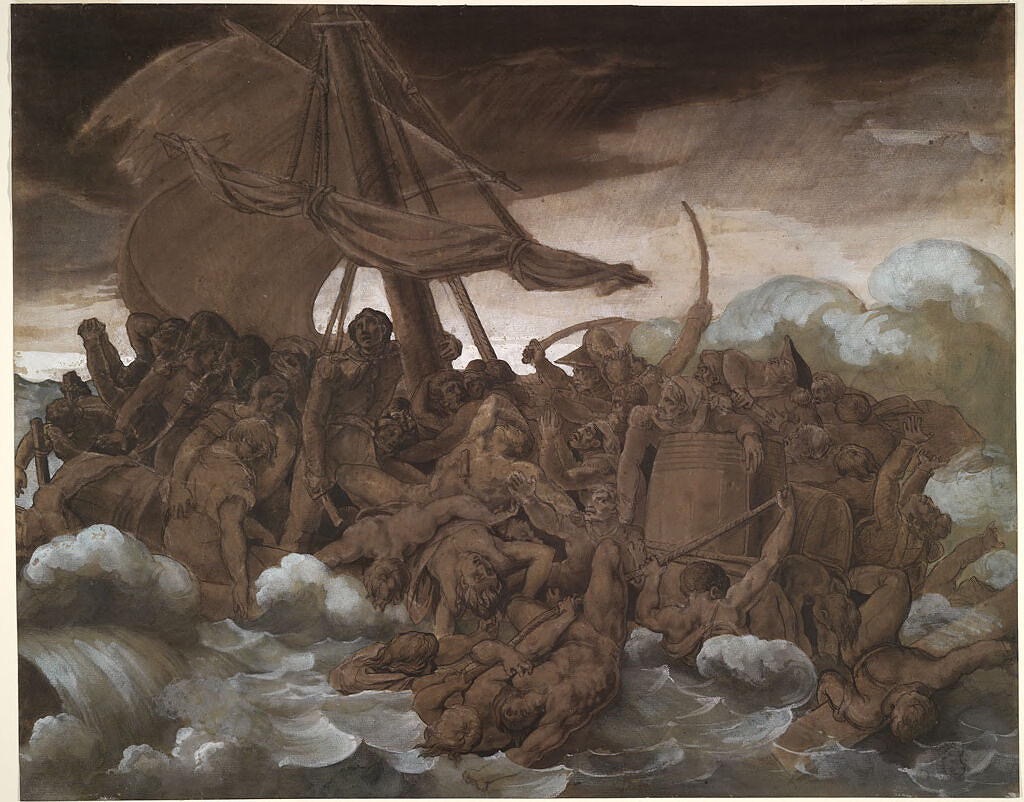
Théodore Géricault: The Mutiny on the Raft of the Medusa [Historical Background](1818)
——
Questioning
“ …We abandon our cross-examinations when we grow weary of discovering…”
This Decency Story explores one of the foundations of Decency: Questioning. Despots and authoritarians despise the very questions democracy utterly depends upon.
This Decency Story argues that authoritarians dislike questions because they undermine authority and demand engagement. Questioning seems essential to democracy and decency, as it encourages equality, respect, and dialogue, even when answers are elusive. The act of questioning fosters wisdom, possibility, and Decency, rather than simple resolution.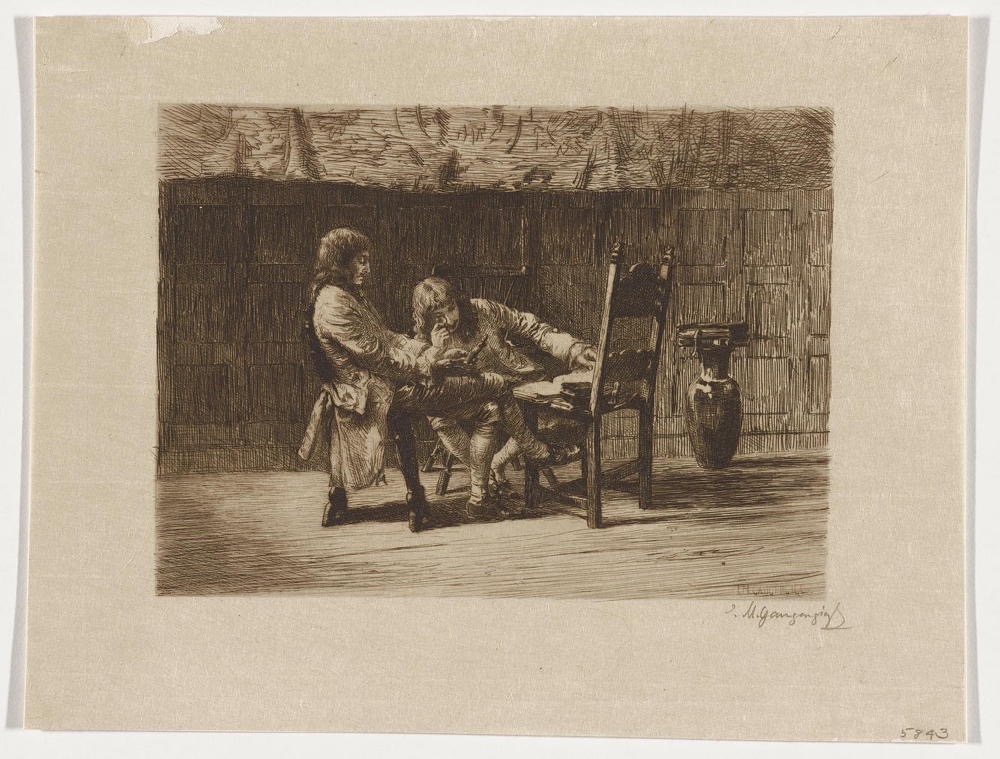
Ignaz M. Gaugengigl: A Difficult Question (19th century)
——
LittleOldMe
“Even LittleOldMe might well be worth it.”
This Decency Story speaks of Decency deployed, insisting that it’s never better targeted than when it’s aimed at the giver, when LittleOldMe treats himself Decently
This Decency Story discusses the difference between how people expect themselves to treat others with decency and how little expectation there seems to be to treat themselves the same way. I reflect on my own patterns of self-sacrifice and self-punishment learned from my family, especially my mother, who often diminished her own presence. I acknowledge how easy it can seem to neglect or punish my own needs while recognizing the importance of extending decency to myself. I admit there’s no easy fix for this tendency. Still, I see value in sometimes prioritizing self-care, suggesting that everyone, no matter how unworthy they may feel, deserves decency too.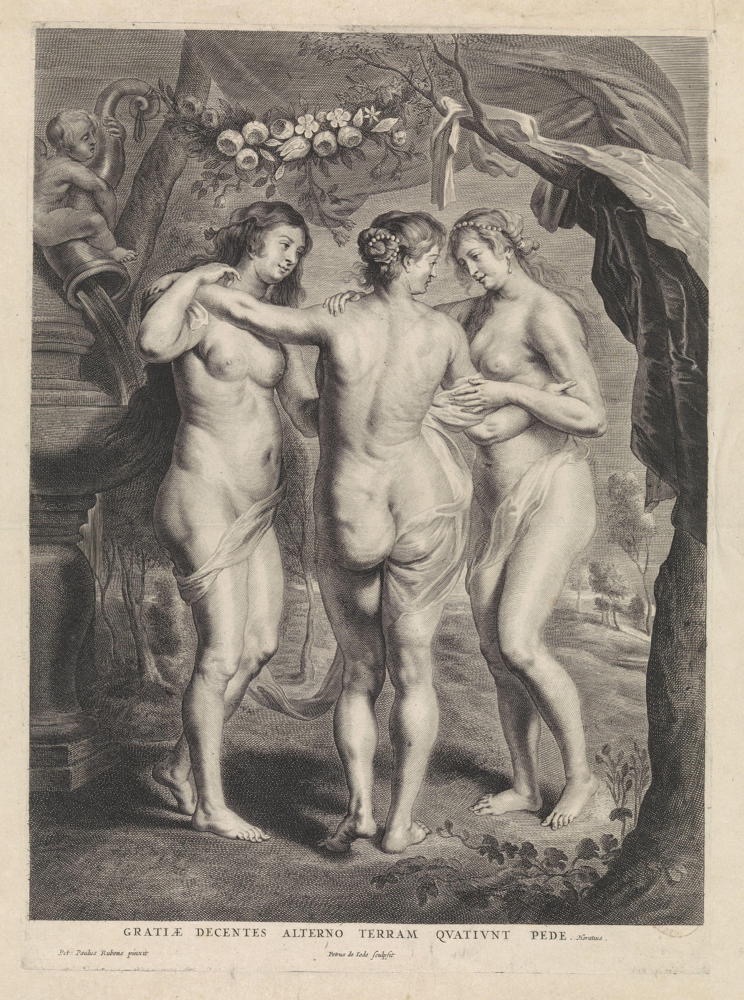
Pieter de Jode (II): Landscape with the Three Graces (1628 - 1670) — The three Graces of Greek mythology were Aglaea, Euphrosyne, and Thalia. Aglaea symbolized splendor and radiance, Euphrosyne represented mirth and joy, and Thalia embodied good cheer and bloom.
——
MoreDecent
“We, The People, seek an ever-MoreDecent Union here.”
This Decency Story recalls how it was to grow up in a demonstrably less Decent society. It serves as a strong statement against reinstating indecencies of the past as somehow being Greater than the MoreDecent union we’ve crafted since.
This Decency Story recalls growing up under repressive social and educational systems, where survival often meant enduring cruelty and suppressing individuality. I describe generational shifts from poverty and strictness toward modern values of decency and inclusion. I portray attempts to return to past norms, Like Making American Great AGAIN!, as damaging and regressive. I value social progress, and I advocate for continued openness and resistance to nostalgic authoritarian impulses.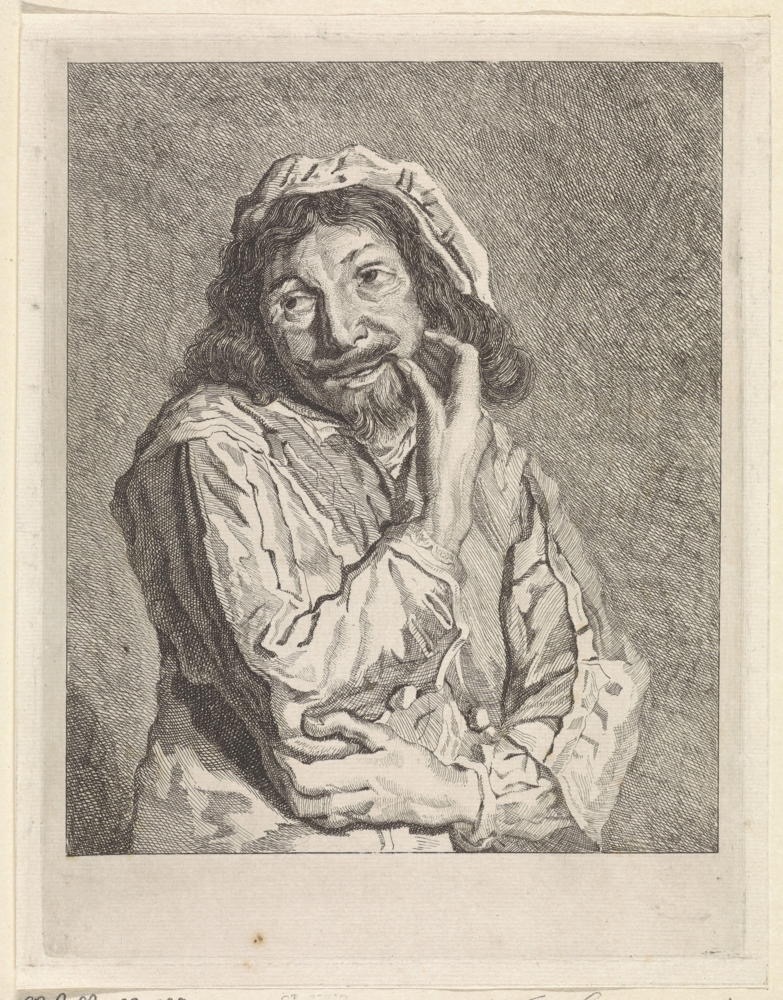
Carel Isaak de Moor: Nar [Fool] (1705 - 1751)
— A fool or madman, looking sideways and holding his elbow with one hand.
——
Unacknowledged Joy of Unconsciousness
I managed to lob off the tip of my left thumb in a regrettable supper preparation accident. This event instantly retired me to a seat before a roaring fire where I sullenly listened to yet another in an almost insufferably long series of post-season baseball games. These days, the postseason lasts nearly a month and features more than a spare few opportunities for somebody's world to end. The following day, I visited the Immediate Care facility, where I was introduced to a futuristic treatment for such injuries. I spent the balance of the week with an oversized thumb splinted up against injury while I continued trying to finish painting the final components for our porch remodeling effort. Some days were too cold for painting, but I painted anyway, paint spreading like putty on reluctant surfaces and refusing to completely dry. I moved the results to the basement for curing next to the furnace. I'm learning how important my left thumb was, now that it's essentially immobilized for the next month. Even though I never texted with it, I unconsciously used it plenty when typing these stories. Small jabs of pain remind me of the previously unacknowledged joy of unconsciousness.
Thanks again for following along!
©2025 by David A. Schmaltz - all rights reserved


